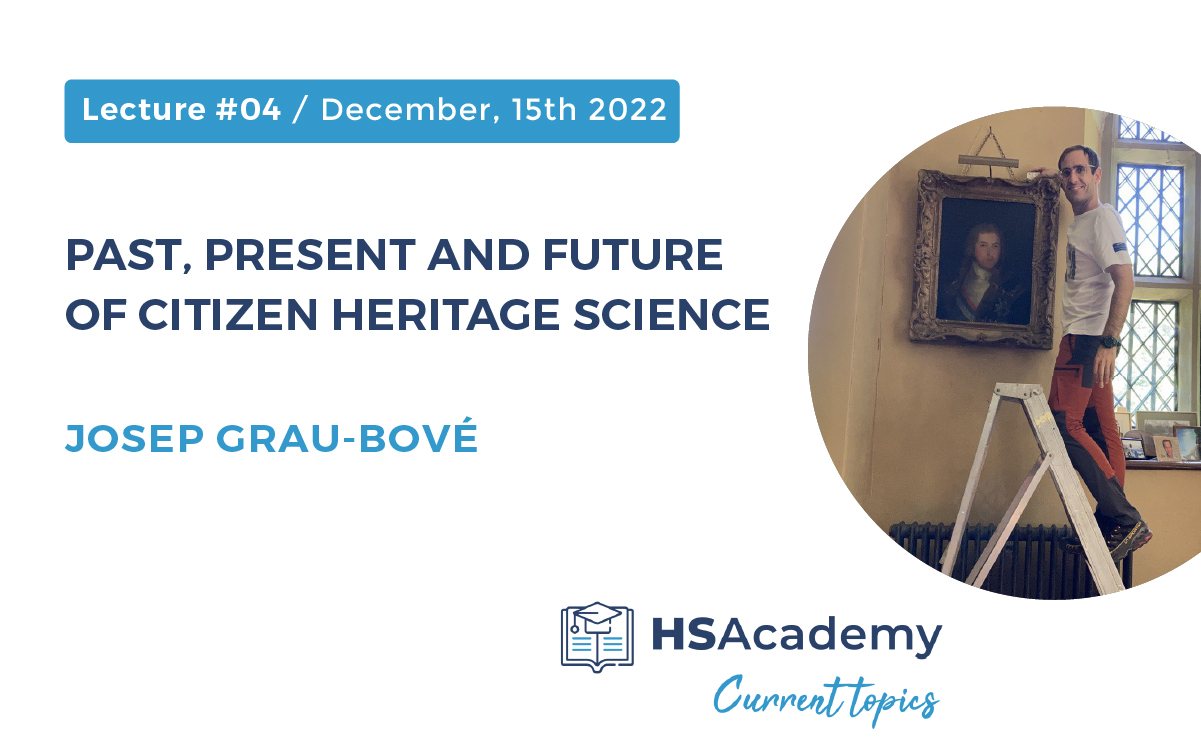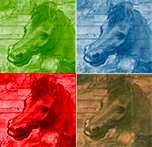
CTinHS Lecture 4/2022: Past, present and future of citizen heritage science
The CTinHS lectures are part of HS Academy: a collaborative initiative between IPERION HS (www.iperionhs.eu) and E-RIHS (www.e-rihs.eu). The two European projects integrate facilities of recognized excellence in Heritage Science, offering access to a wide range of high-level scientific instruments, methodologies, data, tools and training opportunities for advancing knowledge and innovation in the field.
The 4th lecture of the “Current Topics in Heritage Science” series will be delivered by Dr. Josep Grau-Bove on Thursday, December 15th, at 3 pm (Rome time).
Abstract
This lecture will address the key role that citizens can play in heritage science. Citizen Science has a long history. It has existed for as long as institutional science: interest in generating knowledge has never been limited to the ivory tower. Meteorology, nature preservation or astronomy are examples of fields where fundamental research has been carried out by passionate private citizens. However, it can be argued that the last few years have seen a spectacular increase in the number and diversity of citizen science projects. This popularity has been driven by access to digital technologies, such as smartphones and social media, but also by a growing academic interest in participatory approaches.
More recently, citizen science has found useful applications in the heritage sector. Recent research has demonstrated that measurements produced by citizens can be reliable, of enough quality to complement or even replace other types of data collection, and to be used as part of decision making in heritage management and conservation. In this talk, we will review what scientific tasks are well-suited to be done in collaboration with citizen scientists, and which ones still require further development. We will also examine what research avenues remain open in citizen science, beyond the assessment of data quality. Collaboration with citizen scientists may, in fact, hold the key to many complex questions in heritage science: for example, understanding how damage is perceived or how to build community resilience against climate change.
Date
December 15th, 2022 at 3 pm (Rome time zone)
You will learn
- the types of participatory science
- How citizen scientists can get involved in heritage monitoring, management and conservation
- Which measurements have been successfully made by citizen heritage scientists
- Human-Machine collaboration: How data science methods are used in combination with citizen science
Key topics we’ll cover
- crowdsourcing and citizen science in heritage
- monitoring of buildings and collections
- metrology of citizen science measurements
- current open research questions in the field
Duration
45 minutes (30 minutes + 15 minutes Q&A)
Speaker
Dr. Josep Grau-Bove is Associate Professor of Heritage Science at the Institute for Sustainable Heritage, University College London. With his team, he uses science and engineering methods to improve the preventive care of heritage. He has pioneered the use of many types of modelling and simulation in heritage, such as computational fluid dynamics and system dynamics. He is the programme director of the Sustainable Heritage MSc, a pioneering course where students can specialise in data science for cultural heritage, heritage science and heritage management. He is also the chair of the Heritage Science Group of the Institute of Conservation.
Recommended readings
- Brigham, R., Grau‐Bové, J., Rudnicka, A., Cassar, M., & Strlic, M. (2018). Crowdsourcing as an analytical method: Metrology of smartphone measurements in heritage science. Angewandte Chemie, 130(25), 7545-7549.
- Liu, Ziwen, Grau-Bove, Josep et al. “Semantic segmentation and photogrammetry of crowdsourced images to monitor historic facades.” Heritage Science 10.1 (2022): 1-17.
- Brigham, Rosie, Grau-Bove, Josep et al. “Using Citizen Heritage Science to Monitor Remote Sites Before and During the First COVID-19 Lockdown: A Comparison of Two Methods.” Conservation and Management of Archaeological Sites (2022).
